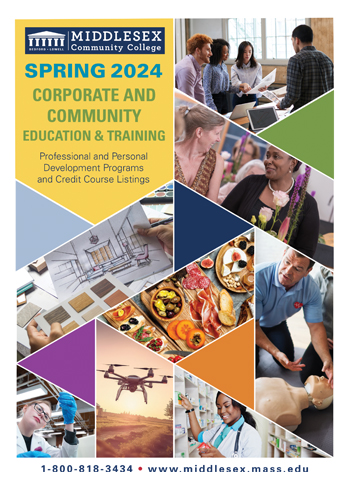Service-Learning
Learning Through Action
- Service-Learning Homepage
- Service-Learning Defined
- View our Impact
- Student Resources
- Faculty Resources
- Community Partner Resources
- Civic & Service Learning
- LOCATIONS
- We are available by appointment only at civiclearning@middlesex.mass.edu
- Bedford Campus
Enrollment Center Room 201
591 Springs Road
Professional Guidelines
Professional Guidelines for Service-Learning
Setting Up Your Service Experience:
- When calling or emailing a community partner, address the individual by name (if one is listed).
- Explain that you are in a Service-Learning course and that you would like to serve at their agency during the semester. Include the following:
- The course name
- What the learning objectives are (this can be found on your syllabus)
- How many hours you need to complete and how you can be reached
Good afternoon / morning:
My name is Jane Smith and I am currently taking an Intro to Sociology course at Middlesex Community College. The purpose of this course is to explore issues facing communities, how societies develop, and how individuals interact with one another. A requirement of this course is to engage in a Service-Learning project at an agency in the community. I am very passionate about hunger and homelessness issues and would like to serve at your site. I need to complete a total of 22 hours this semester. I would appreciate the opportunity to talk with you about volunteer opportunities that are available at your agency.
I look forward to hearing from you and can be reached via email or on my cell (xxx) 222-3333.
Thank you for your time,
Jane
- Before signing up with a site, set up a meeting with the site supervisor to discuss your course objectives, the mission of the organization, complete the Service-Learning Contract, and complete any agency paper work.
- After that initial meeting, sign up with your course through GivePulse (https://middlesex.givepulse.com).
- Set up a schedule with your site supervisor, at the beginning of the semester, to ensure weekly consistency throughout the semester (i.e. serving every Tuesday from 3pm-6pm for 10 weeks). Consistency is crucial for building relationships with staff and those you’re serving. This is especially important when working with children.
- Do not cram all of your hours into a few days. Oftentimes, nonprofit agencies cannot accommodate this as they are juggling a number of volunteers and projects.
Communication:
- Examples of professional communication:
- If you are unable to make it to the site (illness, car trouble, emergency, etc.) contact your supervisor ASAP. Agencies rely heavily on volunteers and need time to find another volunteer or staff member to cover activities. This is also a professional environment where timeliness is expected.
- Inform your supervisor if you do not know how to perform a specific task so that you can be trained effectively. A supervisor will not know what issues you are experiencing, if you do not address them in a timely manner.
- If you are uncomfortable with a situation or individual, tell your supervisor immediately. Your safety is very important!
- Be professional when emailing your site supervisor or leaving a voice mail message. You are representing MCC and this individual could serve as a reference for you in the future. If you are upset about a situation, address it in person. Emails can convey tone and be misinterpreted.
- Respect confidentiality and do not share names of clients and their situations with those you know.
- DO NOT share personal information (phone number; email, or any form of social media information)
with a client or child you are working with. Professional boundaries are crucial.
- Let your site supervisor know when your last day of service is ahead of time, so that
he or she can plan accordingly. Do not tell him or her the day of as your supervisor
has put time into your learning.
- Send your site supervisor a thank you card or email expressing your gratitude for the experience, what you learned, and the skills you gained.
Policies and Procedures:
- Adhere to all policies, procedures and guidelines of the agency. They are in place
to protect the client confidentiality, create a safe space for clients, and to ensure
your safety and well-being.
- Do not use your cell phone or any electronic devices when serving at your site. Be
present during your experience. Keep your phone on silent and if there’s a situation you
are dealing with, inform your supervisor so that they are aware that you need to have
your phone on you.
- Dress appropriately when serving at your site.
-
- Do not wear revealing or ripped clothing or t-shirts with inappropriate logos on them.
- Ask your supervisor about their dress code.
- Wear MCC gear, if you have it. It’s great to show school pride!
- Dress for the project you’ll be working on (i.e. if working with a community garden,
wear clothes you don’t mind getting dirty).
- Do not use offensive language, share inappropriate jokes, or engage in dialogue that could hurt others.
Have fun! Our community partners love having MCC students come in to serve and they are so appreciative of the help! Enter with an open mind and you will get so much from your experience.
Thank you for engaging in a Service-Learning experience through MCC!!
